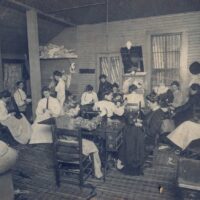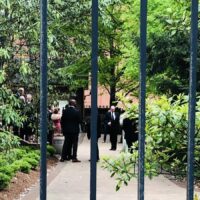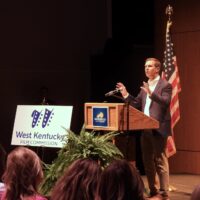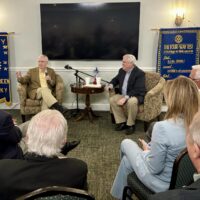Ginny Poland climbed a ladder Tuesday afternoon and began stringing Christmas lights along the front gutter of her mother-in-law Cathy Poland’s house on U.S. 41 in the heart of Pembroke.
At first, Ginny wasn’t sure they ought to decorate their houses with lights. She thought it might seem disrespectful.
It had been 10 days since they rode out an EF2 tornado in a storm shelter, and Pembroke is still littered with debris along every street in the older sections of town.
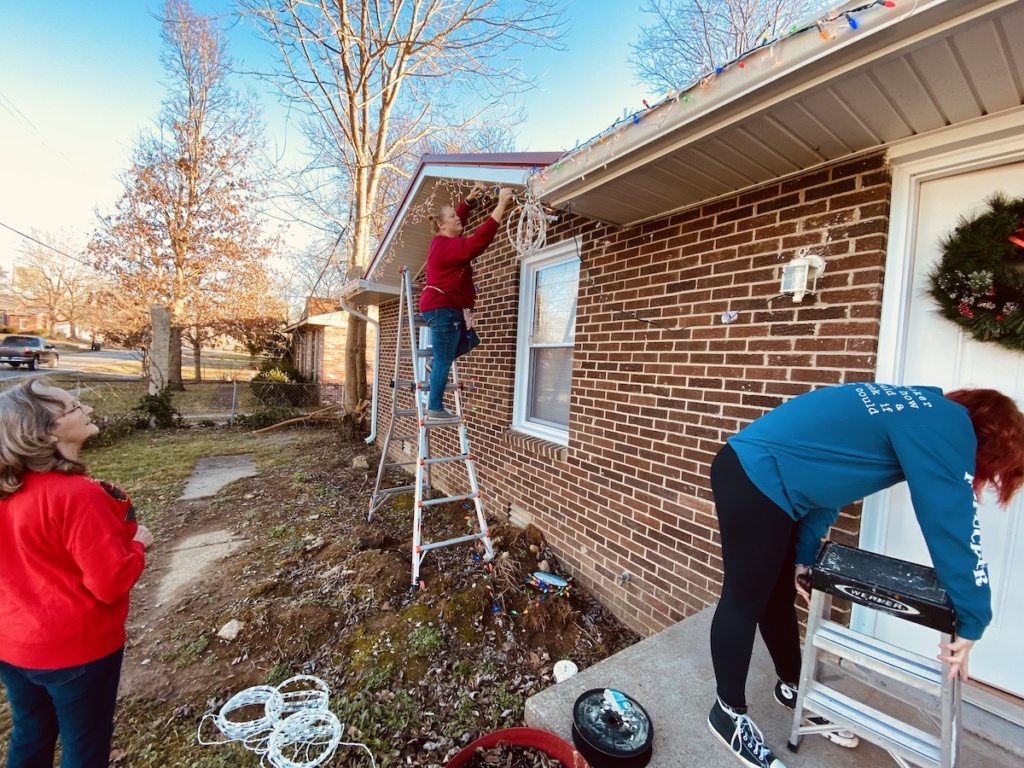
Dozens of houses and barns were destroyed or heavily damaged. The town cemetery was battered and numerous headstones were broken or knocked down.
In other Western Kentucky towns, 76 people were dead following the tornadic outbreak the weekend of Dec. 11.
Ginny said her husband, Jack Poland, helped her see things differently about dressing up the town a bit for the holidays.
“It was a struggle for me at first,” said Ginny, who is a full-time substitute teacher at Christian County High School.
“But now I see it’s a sign of resilience,” she said.
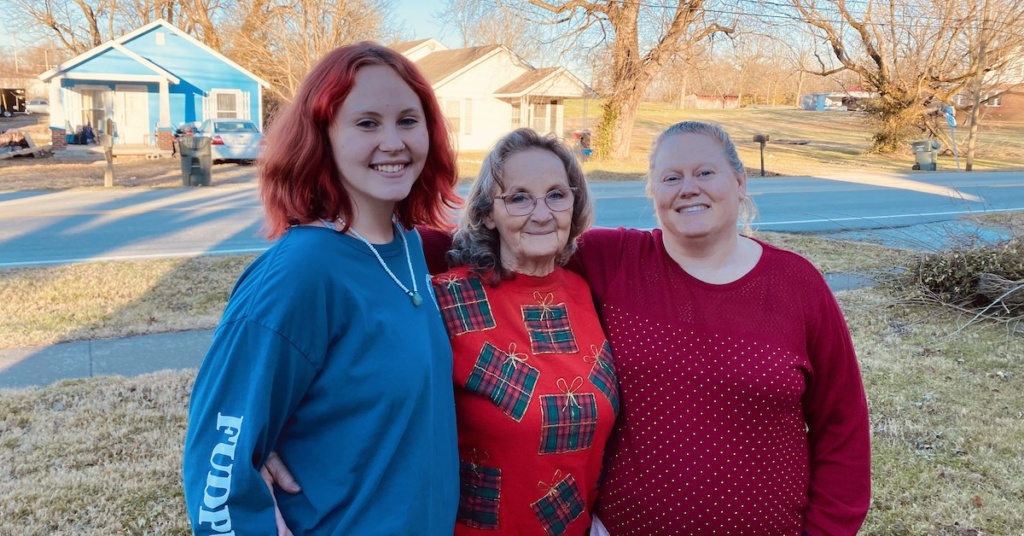
So Ginny and her 14-year-old daughter Catie went to work. First they put up a strand of white lights that dangle like icicles. Then they added colored lights. Cathy stood back on the lawn and watched them work as traffic passed at Pembroke’s only intersection with a flashing light.
This is Cathy’s first Christmas in Pembroke. She moved up from Florida in November. Her husband died in September 2020, and she wanted to be close to her family.
The tornado did not damage Cathy’s house, but they don’t have to look far to see how it tore through much of the town. The memory of the night isn’t far off, either.
Taking shelter
As the storm approached, Cathy’s family got into a storm shelter at her son’s house. The four of them — Cathy, Jack, Ginny and Cate — shared space with two dogs, three cats, one fish and a lizard.
When the tornado came through, they could hear debris striking the houses. Their ears popped as the air pressure changed. The animals sensed something was wrong.
They prayed that God would keep them safe.
Then they heard a neighbor talking outside, and they knew it was safe to open the door and climb out.
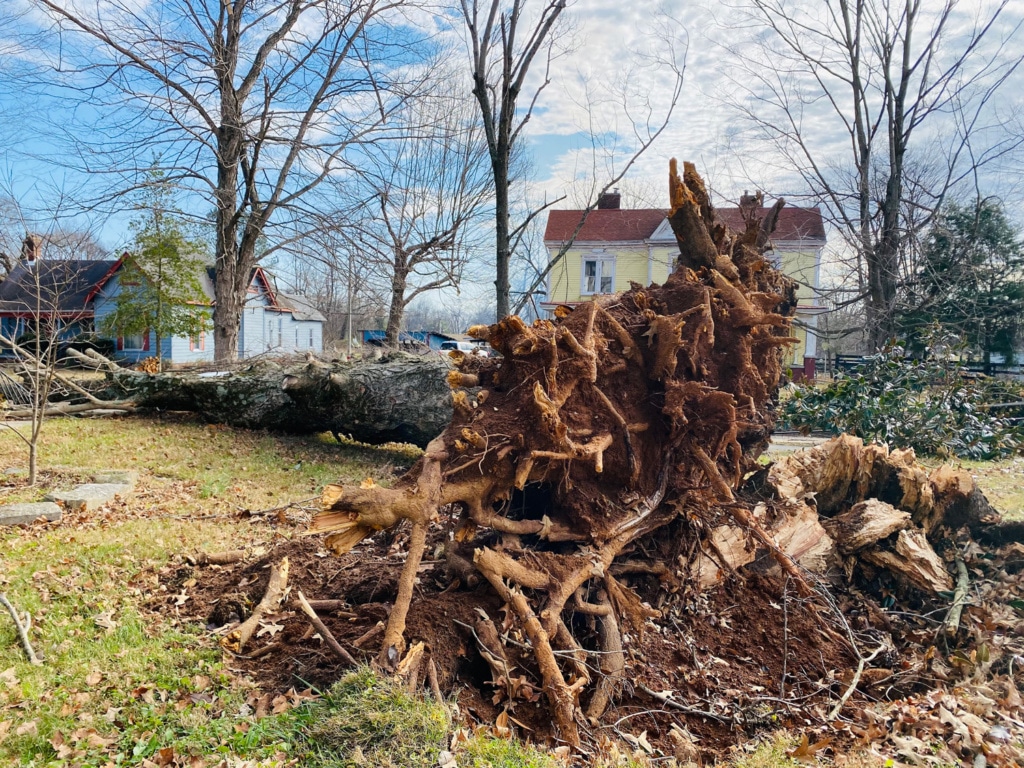
Cathy said she experienced hurricanes in Florida. But what she witnessed in Pembroke immediately after the storm was something she had never seen.
“They didn’t wait for help,” she said.
It seemed everyone had a chainsaw, knew how to use it and immediately went to work. Before daybreak, Pembroke firefighters were going door-to-door to check on residents.
The hit felt personal
For Judy Peterson, it was a gut punch the morning after the tornado to see what had happened to the town.
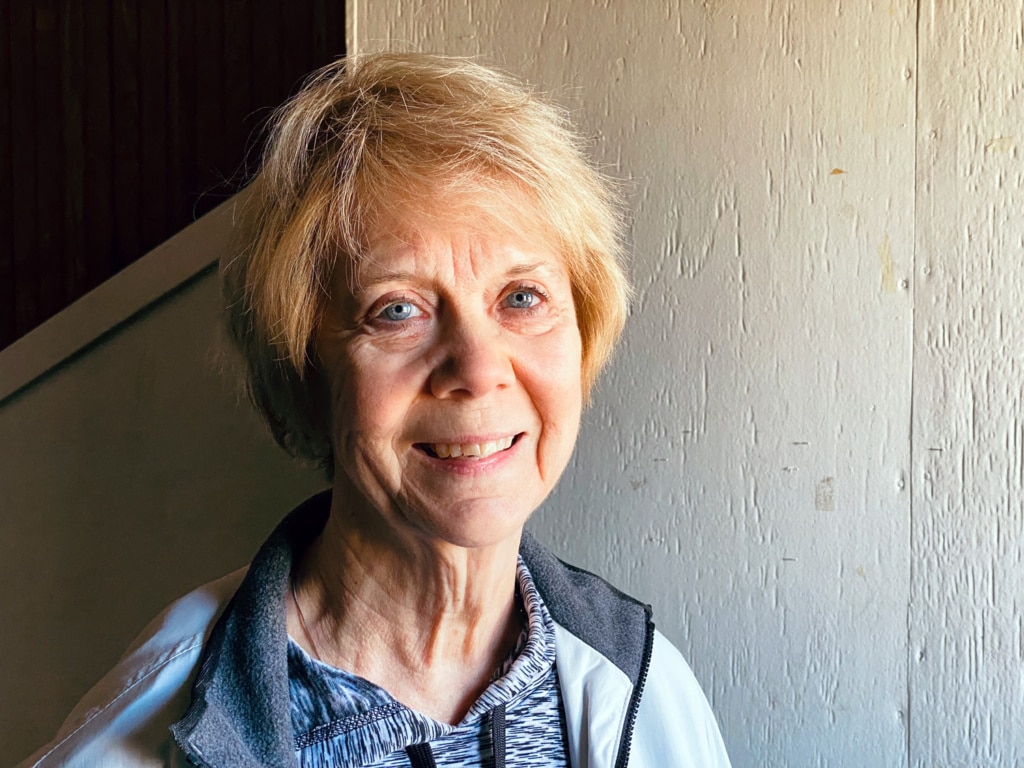
She knew what a tornado-ravaged community looked like in news reports. She had seen photos from other places.
But this was different, she said. This was personal.
Peterson, the mayor and a resident of the farming community for more than 50 years, knows most of the people whose homes and farms were hit.
“You know who is at this house and the one next to it, and the next,” she described two days after the storm as volunteers were arriving to help with the recovery work.
Pembroke is home to about 865 people who make up roughly 330 households, according to the 2020 Census. The area inside the town limits is 1.1 square miles. A longtime resident like Peterson can hold a map of the community in her head. When a crisis hits, she has a sense for who is affected, block by block.
Volunteers from near and far
Help came quickly and from many sources immediately after the storm, said Peterson.
A Christian men’s ministry she knows of through her brother, Pembroke resident Webb Ross, sent a truckload of generators from Louisiana. That was crucial for some residents who went days without power they need for medical equipment such as oxygen tanks.
Continental Mills sent employees early every morning to make breakfast on a large grill outside the Pembroke fire hall, which became a command post, said Fire Chief Nick Belair.
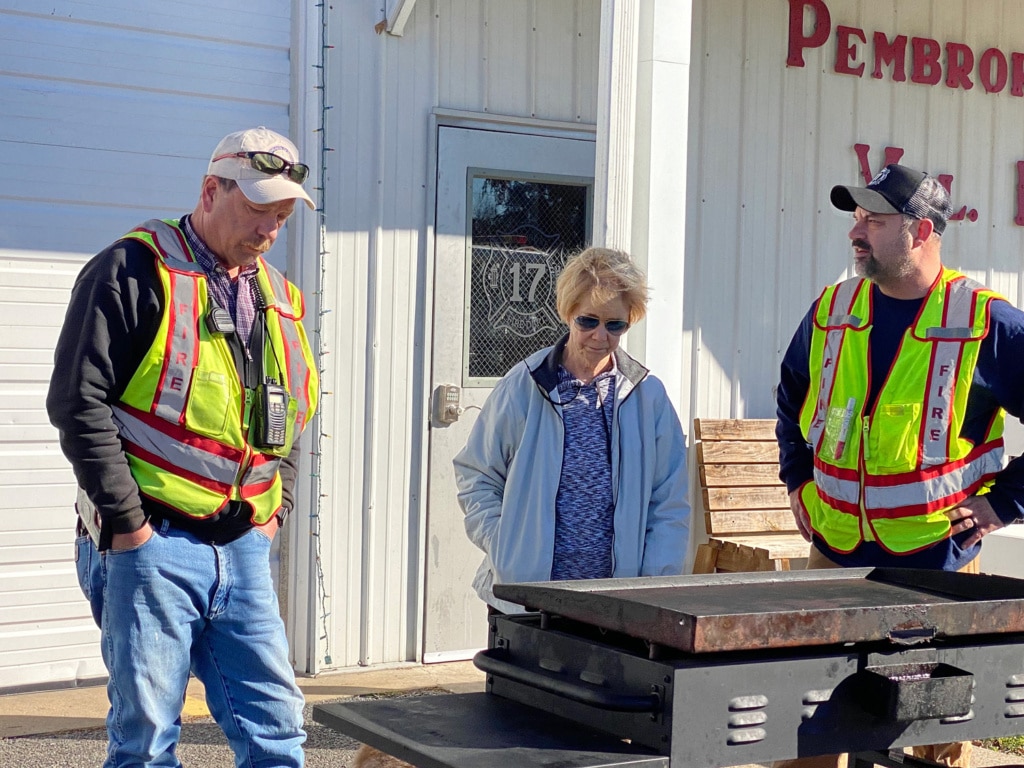
Vansauwa’s food truck rolled into town one day and served tacos at no charge.
Another truck arrived from out of state with boxes of food, clothing and toilet paper. The mayor had them unload at the old school gym so the city would have a place for residents to get household items when they need them.
People drove in with truckloads of bottled water.
A woman opened her car trunk and pulled out bags of diapers.
A man from Georgia who apparently had no connection to Pembroke drove up one day with his chainsaw and went to work in Rosedale Cemetery. Boy Scouts hurled tree limbs into piles. Retired Hopkinsville businessman Tim Moore also went to the cemetery with a chainsaw.
Southern Tree and Debris Removal, whose owner Mark Narducci lives in Pembroke, had crews working for days.
There were hundreds of volunteers tackling the debris, said Belair.
“It’s basically neighbor helping neighbor, he said.
Pembroke’s 25 volunteer firefighters were at the center of the operation. On Tuesday, the fire department shifted the command to the mayor’s office, and city hall will now coordinate teams of volunteers to work with homeowners who need help repairing and rebuilding houses, said Belair.
A Mennonite ministry is sending members from Pennsylvania and other states to work on homes where some of Pembroke’s poorest residents live.
“They will work with people who don’t have insurance and need a new roof or even a house built,” said Belair.
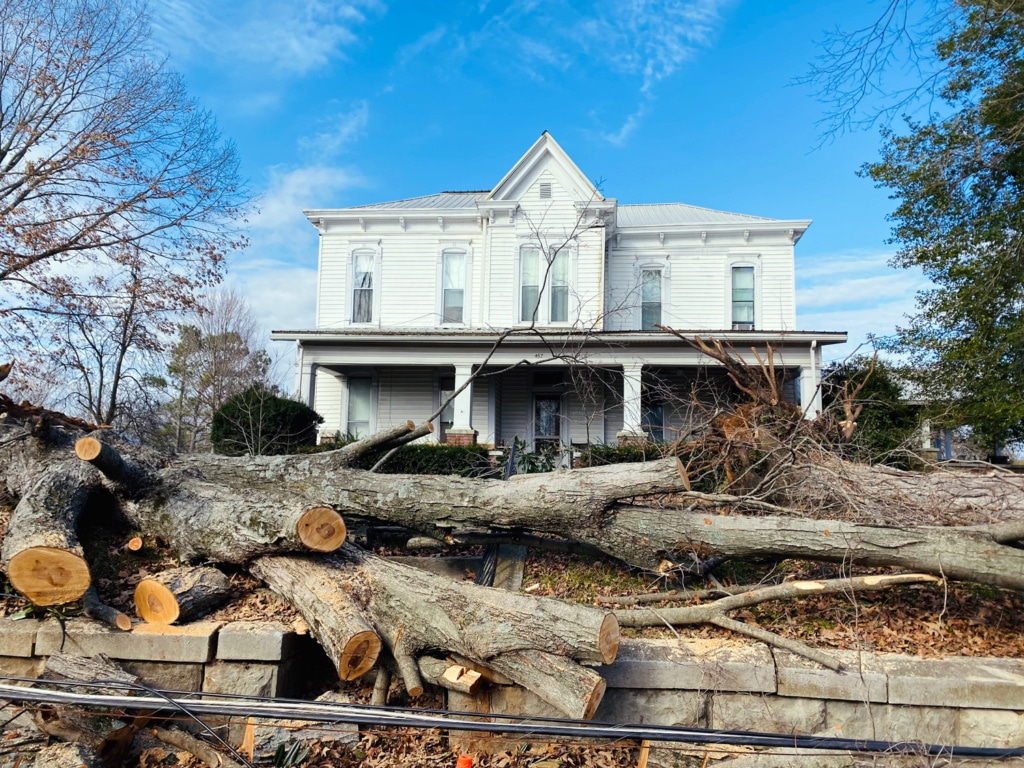
FEMA workers arrive
Belair said he and the mayor met Tuesday with FEMA representatives who are planning to set up an information center in Maddux Funeral Home where residents will be able to get advice about relief money and other assistance.
They will also go door-to-door to help residents sign up for assistance.
The fire department will likely apply for help to cover some of its expenses in the storm response. That would include lost and damaged equipment.
Belair said the city and fire department will make announcements on their Facebook pages when more information is available about the FEMA center in town.
- RELATED: Christian County residents now eligible for FEMA disaster aid
- RELATED: Here’s how to apply for FEMA disaster relief, and what to avoid
Jennifer P. Brown is co-founder, publisher and editor of Hoptown Chronicle. You can reach her at editor@hoptownchronicle.org. Brown was a reporter and editor at the Kentucky New Era, where she worked for 30 years. She is a co-chair of the national advisory board to the Institute for Rural Journalism and Community Issues, governing board past president for the Kentucky Historical Society, and co-founder of the Kentucky Open Government Coalition. She serves on the Hopkinsville History Foundation's board.
